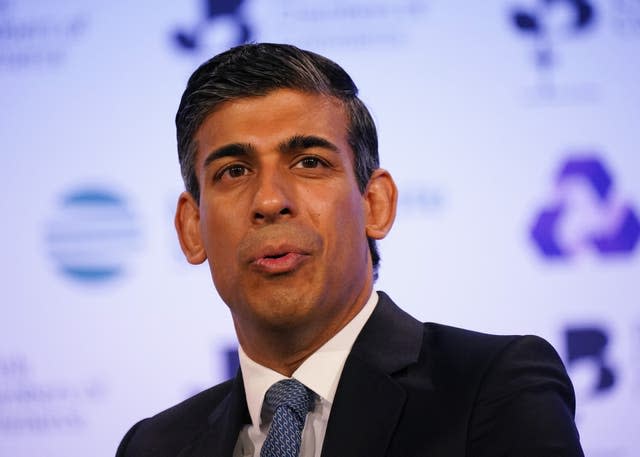Rolling go-slow fuel protests bring gridlock to UK motorways
Fuel protesters have brought gridlock to motorways and major A-routes across the UK with a series of rolling go-slow roadblocks.
Dozens of campaigners who are calling for a cut in fuel duty targeted the M4 in South Wales and Somerset, and stretches of the M5 from Devon to Bristol, on Monday.
There were also protests on the A38 in Devon and at a Tesco petrol station in Shepton Mallet.
Further afield, there were demonstrations on the M54 in Shropshire, near the Ferrybridge services in West Yorkshire, on the A64 in the York area, on the M180 near Scunthorpe, and on the A12 in Essex.
In a series of 30mph rolling roadblocks, the protesters were able to bring disruption to road networks during the morning rush-hour.
The protests, which started at around 7am, are understood to have been organised via social media under the banner Fuel Price Stand Against Tax.
They come as the latest figures from Experian show the average price of petrol reached a new high of 191.5p per litre on Sunday, while the average price of diesel was 199.0p per litre.
Rolling protests had started simultaneously on the M4 from Magor services in South Wales and the junction 20 Almondsbury intercharge near Bristol, with police telling demonstrators they could not stop and must drive no slower than 30mph.

Police escorted the two blockades as they crossed the River Severn but prevented them from making the return journey.
For more than an hour no traffic was able to cross the M4 Prince of Wales Bridge in either direction because of the demonstration.
At least eight motorists were arrested by Gwent Police for public order offences and had their vehicles seized, according to eyewitnesses.
Some of their passengers said those arrested have been “unfairly” targeted by officers.
Meanwhile, Devon and Cornwall Police said a motorist in his 50s was arrested on the A38 for a public order offence after allegedly driving repeatedly at a “dangerously low speed”.

Among those gathering at Magor services, near Caldicot, was Vicky Stamper, 41.
The former HGV driver, from Cwmbran, said she and her partner Darren had to give up jobs in Bristol because they could no longer afford the fuel.
She said: “We had to leave those jobs because it was costing us £380 a week just to get to and from work.
“I then lost a job two weeks ago because the company couldn’t afford to put fuel in that many lorries so last in, first out.”
She said the situation has taken an emotional toll on her and her family.
Talking about the disruption the protest will cause to drivers, Ms Stamper added: “We’re doing this for us and for them. If they want to have a moan, they should join us instead.”
Asked what she would ask Prime Minister Boris Johnson to do, she said: “Resign.”

Mobile welder Richard Dite, 44, from Maesteg, South Wales, said it is costing him hundreds of pounds in fuel to get to work every week due to price hikes.
“It’s costing me £300 a week before I even get to work and earn anything,” he told the PA news agency.
“My only option soon will be to put the welding gear in the shed and call it a day, maybe go on the dole.
“Face it, at this rate I’ll be on more that way.”
Martin Crowley, 48, from Cardiff, said he is a self-employed exotic animal courier and fuel prices are damaging his livelihood.
“Fuel cost me £280 over two days last week. It’s unbelievable,” he said.
“You can hardly make a living anymore.”
The AA claimed that petrol wholesale costs ended last week 10p down on the record highs of early June.
The organisation’s fuel price spokesman, Luke Bosdet, said: “It is an outrage, plain and simple, that the fuel trade could be slashing petrol prices as the nation heads towards the holiday season, but isn’t.”
‼️ Both east and westbound of the Prince of Wales bridge has now been re-opened.
Please keep an eye on our social media channels for further updates.
Thank you for your patience. pic.twitter.com/24dqHXtCPM
— Gwent Police (@gwentpolice) July 4, 2022
Chancellor Rishi Sunak said he will carefully consider calls for a “more substantial” fuel duty decrease after the 5p-per-litre reduction implemented in March failed to halt price rises.
The Government said that, while it understands that people are struggling with rising prices and have a right to protest, “people’s day-to-day lives should not be disrupted” and warned that traffic delays “will only add to fuel use”.

 Yahoo News
Yahoo News 